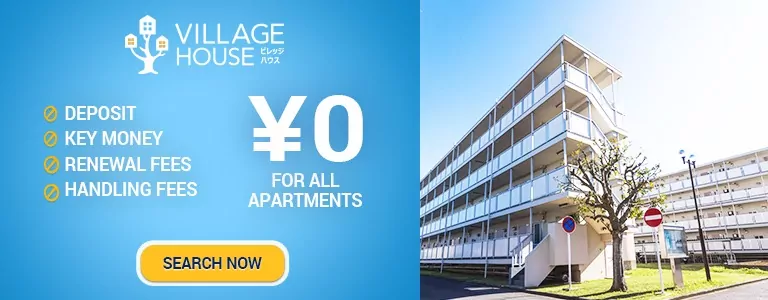Moving is often an inevitability for a lot of people and most people would move at least once in their lifetime whether they want to or not. Moving can often be a nerve-wracking and stressful experience, not to mention time-consuming and expensive, but when it comes to moving by yourself, all of these issues can be exacerbated especially if you don’t stay on top of things.
To help minimize the stress and anxiety that can and probably will come with moving alone, this article aims to provide some useful tips and advice for those with a move ahead in their futures.

Make Sure You Are Well-Prepared
James Baker III, former US Secretary of State coined the philosophy of “The 5 Ps of Preparation”: Proper Preparation Prevents Poor Performances. In other words, the more prepared you are, the better the results and outcome. This idea cannot be truer when applied to moving, especially if you’re moving alone.
A great way to stay on top of things when moving alone is to start early. The timeline on when to start tackling all that will be involved in your move is highly dependent on where you’re moving to – are you moving down the street; across the city; to another city; to another prefecture; to the other side of the country; or to another country? Wherever your final destination is, starting early will be key to helping reduce stress and anxiety when moving. Experts suggest giving yourself a minimum of 1-2 months before your moving date to start sorting through your belongings and packing things up; but of course, the earlier you start, the better.
One thing that helps immensely when you’re planning to move is to create a moving and packing to-do list. This will help you visualize what you need to do and also how much you’ve done so far. Things to add to your moving and packing list may include but not be limited to the following:
- Researching moving options (removals company, rental van/truck, shipping company etc.)
- Packing supplies (packing twine, moving boxes, bubble wrap, packing tape etc.)
- Itinerary of what is in each room
- Budget and expenses
- Storage options for belongings and furniture
- What belongings to KEEP, SELL, DONATE, THROW, and PUT IN STORAGE
- Furniture size (is your new accommodation furnished? Will your current furniture fit in your new place?)
Ask for Help
If you’re lucky enough to have a local support system in the way of family and friends, then why not ask for their assistance to try to make your move go as smoothly as possible? You can ask them for support in:
- Sorting and packing up your belongings
- Helping to sell, donate, or throw away your belongings
- Unpacking your belongings in your new place
- Loading and unloading the packing boxes into the rental moving truck or van if you decided to move without the aid of a professional removals company
- Disassembling and reassembling furniture
- Moving furniture from your old place to the rental moving truck or van; and then from the rental moving truck or van to your new place
- Driving the rental moving truck or van if you can’t or don’t drive
While many family members and friends are willing to lend a helping hand without monetary compensation, it’s still a nice and kind gesture to pay them back for their time and efforts. You can do this by treating them to a meal, throwing a housewarming party, or gifting them with things you no longer want or need that they may want or need. Returning the offer to help them in their possible future moves is also another wonderful way to pay it forward.

Disassemble Furniture
If your current place is furnished with IKEA furniture, then you’re in luck in this department as IKEA’s products are meant to be packed in flat boxes for easy removal and transport. Even if your furniture isn’t from the IKEA, it’s still a practical idea to disassemble any furniture you wish to take with you when moving as it’ll be easier to haul it out of your apartment or house, potentially into the elevator or down the stairs, and out into the rental moving truck or van.
Depending on how savvy you are with power tools and tools in general, you can either disassemble your furniture alone or get some help in the form of family and friends. If you’re someone who keeps the assembly instructions of the furniture you bought, then you can simply follow those instructions to disassemble them. An alternative would be to look up instructions manual or guide online by Googling the product’s name, ID code etc.
A word of caution: measure the space you want to put your current furniture in at your new place to ensure it fits before doing any disassembling to save yourself time and effort.

Avoid Overpacking
One of the benefits of moving is that it provides the perfect opportunity for you to scrutinize your belongings with a critical eye in order to sort them and downsize. It’s no surprise that the less stuff you have to move, the easier the move will be. Thus, take the opportunity to do an inventory of your belongings and decide whether to KEEP, SELL, DONATE, THROW, or PUT IN STORAGE.
A general rule of thumb, especially when it comes to clothes, if that if it hasn’t seen the light of day in over 6 months, then it’s safe to say that you can probably SELL, DONATE, or THROW it away. Items that are old or on their last legs can also be thrown away to make space for new things.
Get the Right Tools
Tools are another inevitability when moving – you’re either going to need tools to disassemble furniture or tools to do minor DIY repairs around the apartment or house, especially if you’re renting and wanting your full deposit back.
If you’re currently residing in Japan and don’t own a basic toolkit or toolbox, the good news is that purchasing one doesn’t have to eat into your moving expenses. Simply visit one of the numerous 100yen stores scattered around the country – just like Village House, which has over 1,000 properties scattered across Japan’s 47 prefectures! – for the tool(s) you need.
In sum, moving can be headache inducing and anxiety inspiring but if you prepare well in advance, do your research, and enlist your family and friends’ help, the transition from your old abode to your new one shouldn’t be too much of a stressful endeavor. Good luck.
Also, if you are reading this and thinking of find a new place to live, why not check out Village House, a real estate organization in Japan? They have an online application form you can fill out and provide support in multiple languages including English, Chinese Mandarin and Portuguese.
Related articles:
- Moving by Yourself: Is It a Good Idea?
- Help! Which Moving Company Should I Choose?
- Stress-Free Moving: Essential Tips for Packing Like a Pro!
- I Can’t Finish Packing! What Should I Do?
- Moving Checklist: Everything You Need to Prepare for Your Move and a Great Start in Your New Home



